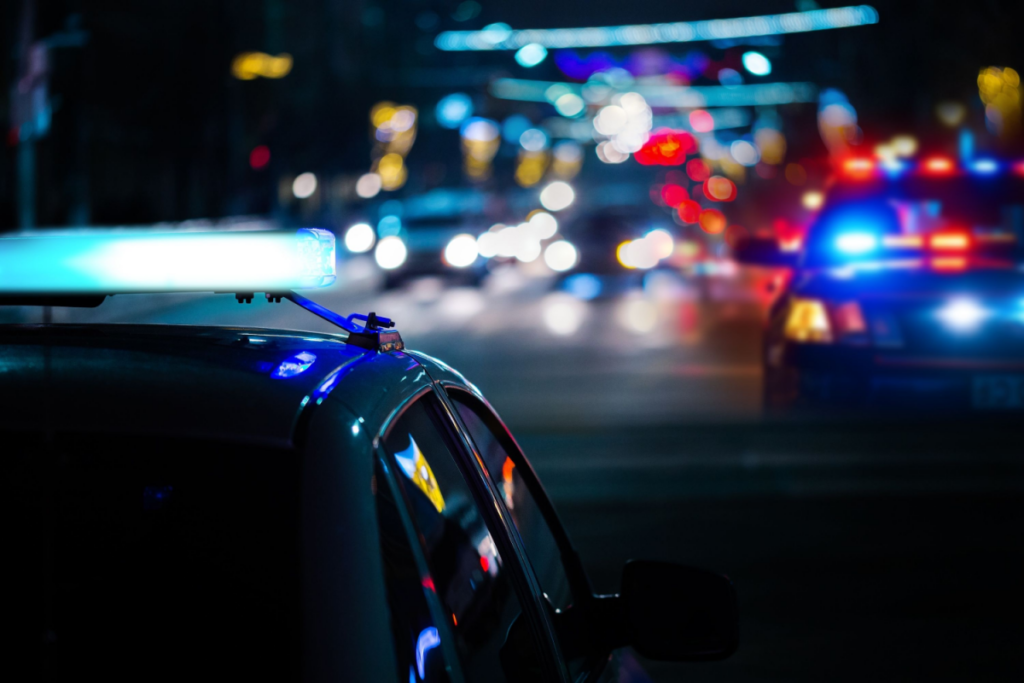Recent changes to roadside drug testing in New South Wales have significant implications for all motorists. These amendments to testing procedures and substances detected represent a substantial shift in how drug-impaired driving is policed and prosecuted in our state.
This article aims to provide an overview of the recent changes to roadside drug testing in NSW. We will examine the new testing methods, explore the expanded list of detectable substances, and analyse the legal ramifications for drivers.
Additionally, we’ll discuss the potential challenges these changes present and offer guidance on navigating this evolving legal landscape.
Roadside Drug Testing in Australia
To ensure road safety, in 2006, New South Wales enabled the power of random roadside saliva tests for the purposes of drug detection to prosecute road users who were driving under the influence.
Under Section 111 of the Road Transport Act 2013 (NSW), a person must not, while there is present in the person’s oral fluid, blood or urine any prescribed illicit drug, drive a motor vehicle, thus making it a punishable offence in NSW. This means that a person can commit a criminal offence even though the illicit drug is present in levels where no ‘influence’ is present.
Random roadside drug tests can occur at a roadside drug testing arrangement where you are waved in to pull over. This is similar to a roadside breath test where your blood alcohol level is analysed for alcohol. Additionally, you can also be tested for drug driving by being stopped by a highway patrol officer or even unmarked vehicles who are police undercover.
If you have consumed other drugs not able to be detected by the test stick, you can still be charged under section 112 of the Road Transport Act, or if you are requested to take a blood test or urine test.
What Happens if You Test Positive in a Roadside Drug Test?
Under the previous random roadside drug testing procedure, drivers are asked to undergo a saliva swab by wiping a Mobile Drug Testing (MDT) test stick down their tongue, which provides a saliva sample to identify if they have illicit drugs in their system.
Under this drug screening test, it will detect the presence of 4 common illegal drugs: Methylenedioxymethylamphetamine (ecstasy/MDMA), methamphetamine (speed, ice and crystal meth), cocaine and THC (the active ingredient in cannabis). This preliminary test usually returns a reading within a few seconds to five minutes. If you test negative on this first test, you will be able to drive away.
However, if the saliva test returns a positive result, you must provide a second oral fluid sample, which requires you to leave your car and accompany the police officer to a mobile drug bus or a police station.
This second drug test is done using a different oral fluid screening device, and it takes around 20 minutes to finalise. If you test positive to the second test you will be prohibited from driving for 24 hours by the police officer, with the remaining proportion of your saliva test sent for laboratory testing.
Should the laboratory analysis detect drugs in your system to sufficient levels, you will be considered to be driving under the influence, and you will be sent a court attendance notice and charged with a drug-impaired driving offence. If the drugs are detected in your system but not at a level sufficient to impair your driving, you will be sent a court attendance notice and charged with a drug-in-system driving offence
You will only be requested to provide a blood or urine test for drug driving in certain circumstances. These are:
- Police hold a reasonable suspicion that the driver has been operating the vehicle under the influence of drugs and the person has failed a standard impairment test,
- When a person is hospitalised following an accident,
- When a person has been involved in a fatal motor vehicle accident,
- When a person cannot submit an oral fluid test, police may take the driver to a hospital for a blood or urine test under the supervision of a medical practitioner.
Other drugs, such as prescription medications, can affect your ability to drive and, therefore, can also result in you testing positive at a roadside test, depending on their chemical compounds.
Therefore, if you do have to take prescription medication, it is a good idea to request a letter from your doctor explaining your need for the medication, that it will likely show up in a drug test, but that it will not impair your ability to drive safely.
New Changes to Roadside Drug Testing in NSW
Changes in testing procedures:
The new roadside test procedure came into force on the 1st of September, 2024. Under the new roadside drug test regime, if you test positive for an illicit drug on the initial MBT swab test, NSW police will now place drivers under arrest for an immediate roadside oral test rather than taking them back to a station.
This means that you will be required to provide a saliva sample for laboratory analysis and also another on-the-spot swab test to confirm the positive reading, which will result in being prohibited from driving for 24 hours.
Consequently, if the laboratory analysis confirms the positive reading, you will be charged with a drug driving offence.
Therefore, the new testing procedure means police officers will be spending less time in the station gathering and processing saliva samples and will have more time out on the road enforcing road safety rules according to their road duties.
Legal Implications of the Change
Updated penalties and charges:
Drug driving offences incur serious consequences and, therefore, incur serious penalties.
For driving with illicit drugs present in oral fluid, the penalties are:
For a first offence of drug driving, offenders now do not have to go to court. Instead, you receive an infringement notice from police to pay $682. You will also be suspended from driving for three months.
Like any infringement notice, you can elect to go to court to have your matter heard; however, there is the possibility for more serious penalties.
Should you elect to go to court, the penalty for a first offence of drug driving is a maximum $2,200 fine and an automatic licence disqualification of 6 months; however, the court can impose a 3-month minimum.
The penalty for a second or subsequent offence of drug driving is a maximum $3,300 fine and an automatic loss of licence for 12 months; however, the court can impose a 6-month minimum.
How these changes affect drivers’ rights:
Considering that you can now be placed under arrest while the officer carries out the oral sample for analysis, you are not free to leave until you have provided the sample. If you do not provide an oral fluid sample, this is considered a criminal offence.
The purpose of this detention power is to allow a second testing process to occur roadside. However, you may clarify with the officer what the arrest is for and require their identification.
Challenging a Roadside Drug Test Result
Generally, a roadside drug test that returns a positive reading is an absolute liability offence; thus, the defence of honest and reasonable mistake is not available and, in essence, leaves an accused person with very little basis for challenging the charge.
However, if you do have an exceptional circumstance, this may mitigate your punishment and allow you to receive the minimum standard rather than the automatic disqualification period and lessen the monetary fine imposed.
Given the penalties that can now be imposed are more serious, costly and could potentially mean receiving a criminal record, it is crucial you get legal advice from experienced traffic offence lawyers before asking to have your matter dealt with by the court.
Key Takeaways
- Recent changes to roadside drug testing in NSW, effective from September 1, 2024, involve new testing methods and an expanded list of detectable substances. These amendments have significant implications for motorists and represent a substantial shift in policing and prosecuting drug-impaired driving.
- Under the new regime, drivers who test positive on the initial Mobile Drug Testing (MDT) swab will be placed under arrest for an immediate roadside oral test. A positive result will lead to a 24-hour driving prohibition and potential charges if the laboratory analysis confirms the presence of illicit drugs.
- Drug driving offences carry serious penalties. First-time offenders now receive an infringement notice with a $682 fine and a three-month driving suspension, without the need to go to court. Electing to go to court may result in more severe penalties, including higher fines and longer licence disqualifications.
- The changes affect drivers' rights, as they can be placed under arrest while providing the oral sample for analysis. Refusing to provide a sample is considered a criminal offence. Drivers may clarify the reason for the arrest and request the officer's identification.
- Challenging a positive roadside drug test result is difficult, as it is an absolute liability offence. However, exceptional circumstances may mitigate the punishment. Given the potentially serious consequences, seeking legal advice from experienced traffic offence lawyers is crucial before requesting a court hearing.
In Need of Experienced Traffic Offence Lawyers?
If you have been fined or charged with a traffic offence in NSW and you can’t risk the demerit points or loss of licence, it is vital that you seek legal advice and legal representation.
The team at Hamilton Janke Lawyers have been recognised for their expertise in traffic matters by Doyle’s Guide and can provide you with sound advice and rigorous representation in court. Contact our expert traffic offence Lawyers now.
Written By

Drew Hamilton
Drew Hamilton is founding partner at Hamilton Janke Lawyers. Admitted to the Supreme Court of New South Wales as a Solicitor and also listed on the High Court of Australia register.




